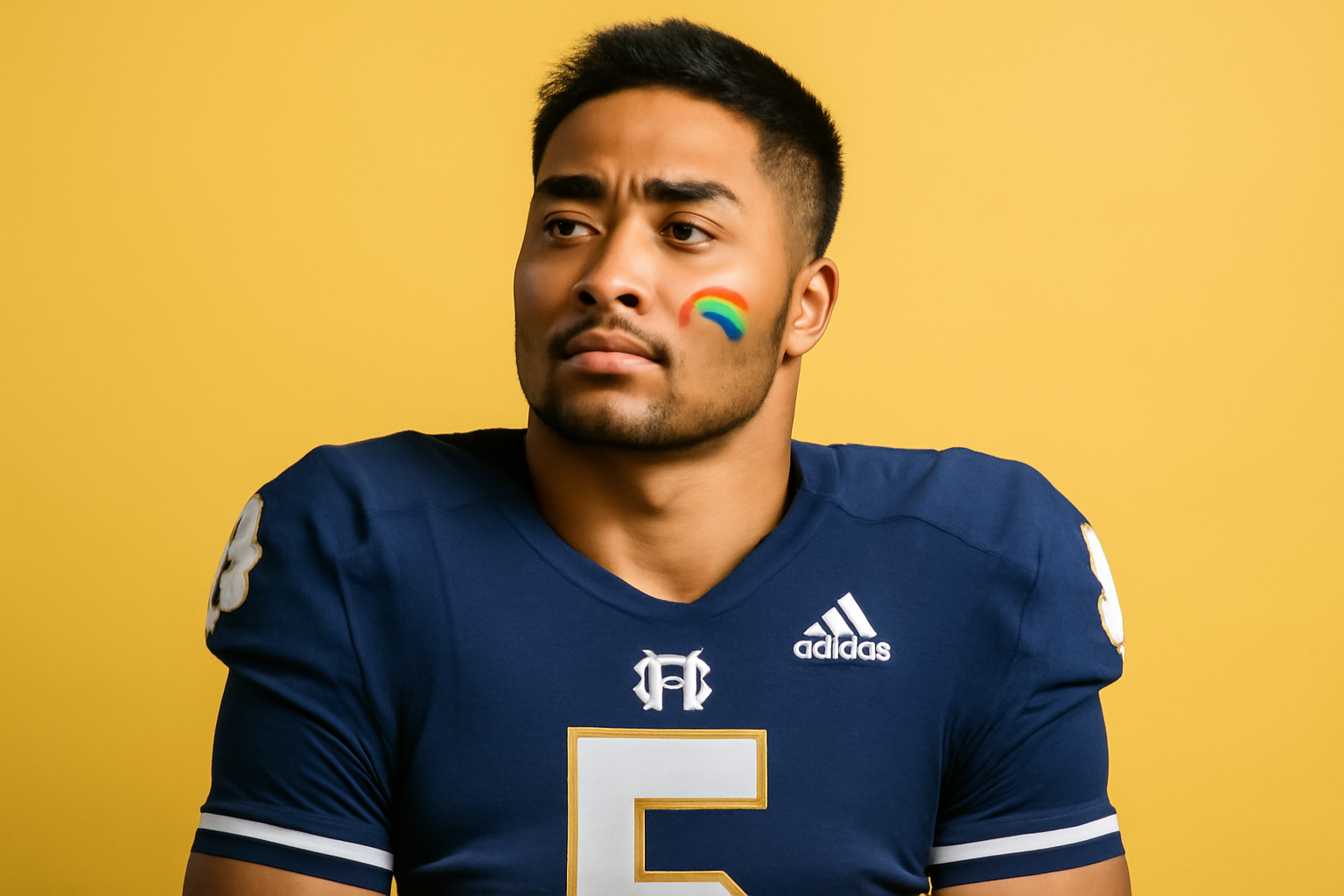
Reflecting on Manti Te’o, Notre Dame Football, and Media Perceptions of Sexuality
Back in college, as I grappled with my own identity, the unfolding saga of Manti Te’o was both fascinating and unsettling. Te’o, a star linebacker for Notre Dame, found himself at the center of a scandal when it was revealed that his deceased girlfriend was a fabrication. This revelation by Deadspin not only shook the sports world but also sparked speculation about Te’o’s sexuality. Was this a cover-up to disguise that Te’o might be gay?
In a recent podcast episode, I revisited this astonishing sports drama, especially in light of the 2022 Netflix documentary "Untold: The Girlfriend Who Didn’t Exist." For the first time, Te’o shares his side of the story, detailing his online relationship with the fictitious Lennay Kekua. The documentary also introduces us to Naya Tuiasosopo, the person who created Kekua, now living as a transgender woman. Tuiasosopo shares her struggle and the reasons behind her drastic actions.
One of the most poignant revelations from the documentary is how the media and public quickly turned Te’o into a subject of ridicule instead of empathy. Despite being the victim of a deceptive plot, Te’o became the butt of jokes and memes. Many couldn’t fathom how he had fallen for such a hoax.
The fallout from the scandal affected Te’o's career. Although he was a Heisman Trophy finalist, the controversy contributed to his fall to the second round of the 2013 NFL Draft, costing him financially and possibly impacting his career trajectory. Te’o played in the NFL for eight seasons, but his career didn’t live up to the early promise.
At the heart of the media frenzy was Te’o’s sexuality. Notre Dame, being a conservative institution, and Te’o's religious upbringing as a member of a Polynesian family, added layers to the speculation. During that time, there were very few openly gay athletes in professional sports, and none in the NFL.
However, instead of addressing broader issues, such as why Te’o might have felt compelled to hide his sexuality — if indeed that was the case — the media narrative focused on sensationalism. On national television, Katie Couric bluntly asked Te’o if he was gay. Te’o’s response, "Far from it," suggested discomfort with the question itself, highlighting the stigma attached to the topic.
ProFootballTalk’s Mike Florio’s discussion on a radio show encapsulated the sentiment of the time: NFL teams were curious about Te’o’s sexuality, implying it could affect his career. Such conjecture clearly indicated how an athlete's perceived sexuality was seen as a possible liability.
Over the past decade, there has been significant progress in how society and the media discuss sexuality. Conversations about an athlete's sexuality today are approached with more sensitivity and respect than they were at the time of Te’o's controversy. Back then, the discourse seemed to imply shame associated with being gay, a sentiment that resonated with me as a young gay person aspiring to enter the sports world.
Reflecting on these events, it’s evident that much has changed in the sporting world and media landscape. We have seen more athletes come out publicly, which has helped shift perceptions and reduce stigma. Yet, Te’o’s story serves as a reminder of how far we’ve come and how important it is to continue advocating for understanding and acceptance.
To hear more about this topic, you can listen to our podcast where we dive deeper into the Manti Te’o saga and its broader implications. Be sure to subscribe to keep up with insightful discussions around LGBTQ+ issues in sports.
Related Posts
Triumphant Trans Woman Wins Legal Battle and Inspires Others to Stand Up for Their Rights
Breaking new ground: a landmark victory in transgender rights After battling in courtrooms and enduring endless challenges, Diana Portillo, a transgender woman, has secured a monumental victory in her decade-long fight against workplace discrimination. The result? Nearly $1 million awarded in a historic settlement. But this isn't just a win on paper—it represents a powerful precedent in combati [...]
Pride Month in Latin America: Protests and Demands for Equality
**Celebrating Pride and advocating LGBTQ+ rights in Latin America** Pride Month in Latin America was a lively mix where celebration met activism. Communities united, not just throwing a party but making a stand—demanding equality and pushing governments toward better protection and rights recognition. Throughout Latin America, pride events erupted in marches and cultural displays, each with a c [...]
Transgender Erasure Actions Implemented by National Park Service
```html Trump administration's impact on national park service and transgender recognition The Trump administration made notable moves in undermining transgender representation, which included directing agencies like National Park Service not include "T" and "Q" when they refered “LGBTQ” in any official communication. This move seems part a broader plan by this administration aimed at reducin [...]